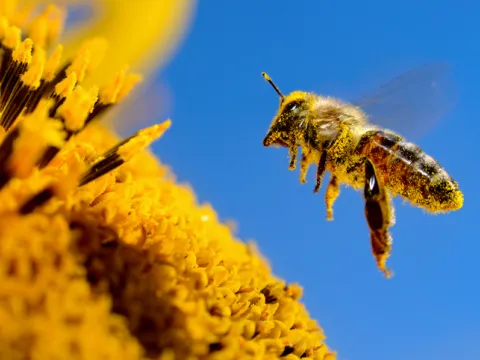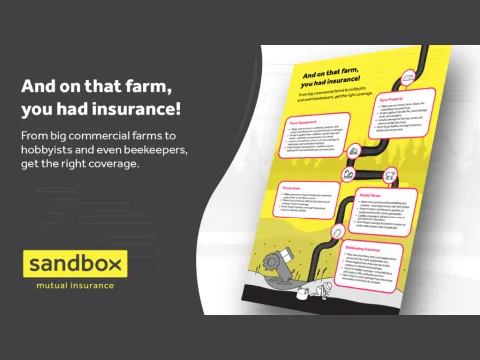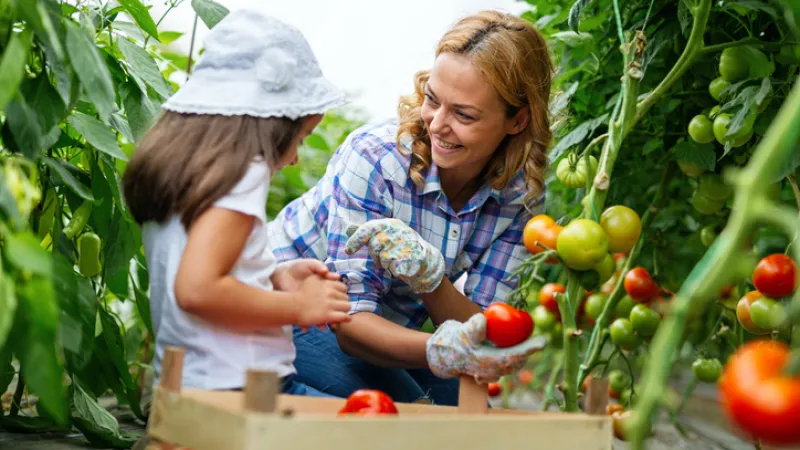
Starting a Hobby Farm: Key Steps and Insurance Tips for the Canadian Prairies
Summary
Reading Time
6 min
Owning a hobby farm in the expansive and rich lands of the Canadian Prairies is an exciting thing. Rich soils, wide-open skies, and communities with welcoming farming folk create a great place to take up small-scale farming. Whether you’re raising livestock, growing organic vegetables, or even aiming for an entirely self-sufficient way of life, establishing a hobby farm calls for some thoughtful planning and knowledge regarding agricultural insurance. Here’s some things to consider:
Choosing the Right Land for Your Hobby Farm
One of the most important decisions to be made in starting a hobby farm in the Prairies is choosing the right piece of land. The provinces of Alberta, Saskatchewan, and Manitoba have diverse agricultural lands, each with unique advantages.
Soil quality, access to water sources, and zoning regulations are all things to consider. The Canadian Prairies are known for our varying climate conditions, with cold winters and warm summers, making it essential to assess whether the land can support your intended crops or livestock.
How close are you to local markets, feed suppliers, and farming equipment retailers? This can also factor into your decision. While rural living offers serenity, easy access to necessary resources can make or break the success of your farm. You should also consider the potential for natural hazards such as droughts, floods, or extreme winter conditions, which are common in the region. Understanding the risks associated with Prairie farming will help you make informed choices about land selection and farm management.
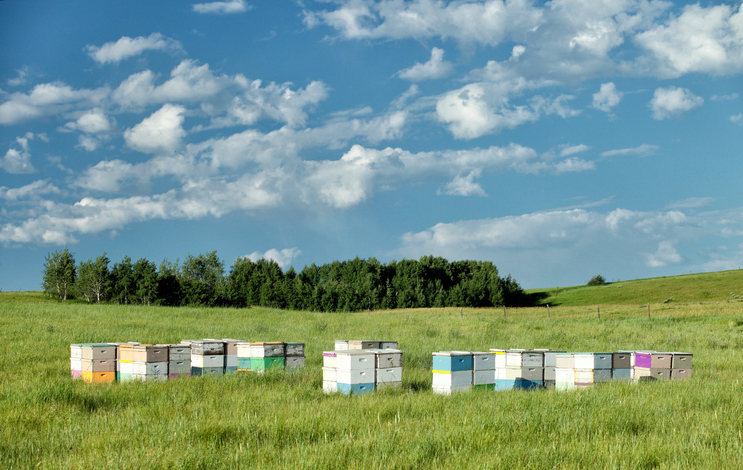
Planning Your Hobby Farm’s Operations
A well-thought-out farm plan is essential for a successful start. Define your goals and determine the type of farming that best suits your land, interests, and capabilities. Many Prairie farmers choose to raise livestock such as chickens, cattle, sheep, or goats, while others prefer to grow grains, vegetables, or specialty crops. Raising bees for honey production is also an attractive option in the region, given the increasing demand for locally sourced honey.
So, sustainable farming should be considered and focused on with the view of long-term viability, like:
- Crop rotation, composting, and soil management methods will help in maintaining soil fertility and reduce the need for chemical fertilizers.
- Livestock management involves proper feeding, veterinary care, and shelter, especially during the harsh Prairie winters.
- Infrastructure investments, like greenhouses, barns, and irrigation systems, can extend your growing season and protect your animals from extreme weather conditions.
Understanding Hobby Farm Insurance Needs
One of the most overlooked but critical areas in starting a hobby farm is how to get appropriate farm insurance for your operation. Most new farmers tend to think their standard home insurance policy will be sufficient for the coverage of their farming activities, but that’s rarely true. Hobby farming introduces risks that require specialized coverage to protect your assets, livestock, and liability concerns.
Farm insurance on the Prairies is available for everything from small homesteads to the largest farm or ranch operations. Depending on your operation, whether it be in size and nature, coverage will need to include building coverage, machinery, and livestock. Don’t forget to consider the business side of things, such as the sale of farm produce to local roadside fruit stands. Keeping this in mind, speaking to an insurance broker with agricultural expertise can help you get the most relevant coverage program for a farmer’s unique operation. Our Farm Lifestyle Box was created specifically for Hobby Farmers in Saskatchewan, Alberta, and Manitoba and can be purchased from a broker near you!
Liability protection is one of the key issues facing many Prairie hobby farmers. When others, whether visitors, volunteers, or customers come onto your property, you can be found liable if there is an accident or injury. Liability insurance would cover a hobby farmer in the event of an accident from lawsuits and potential medical costs associated with that accident. With the sale of products such as eggs, dairy products, or a value-added output, product liability insurance is essential to protect against potential consumer litigation.
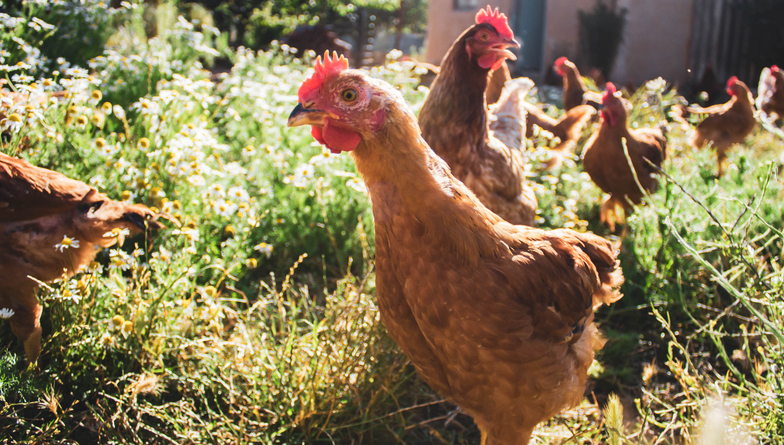
Managing the Risks of Prairie Farming
Every hobby farmer in the Prairies needs to understand and mitigate risks:
Weather: Extreme weather conditions, like hailstorms, heavy snowfall, and prolonged dry spells, can affect your crops and livestock. Good farm structures, like barns, grain silos, and windbreaks will minimize damages that harsh weather can cause. Regular maintenance of fencing, drainage systems, and water supply sources will also help prevent common farming setbacks.
Pests: Another consideration is pest control, since the Prairies have many pests that affect plants and animals alike. It's better to follow an integrated pest management strategy: for example, introduce beneficial insects or use organic deterrents to keep them at bay. If you are going to raise livestock, one key priority is to secure your animals against predators like coyotes and foxes. Proper fencing and the use of guard animals will provide added protection.
Unexpected Expenses: Besides the physical risks, there is financial preparedness. Since hobby farming is generally supplemental and not your primary source of income, it’s important to understand the financial investment involved. The costs of unexpected vet bills, broken equipment, or crop failures can add up fast! Having a contingency fund and an agricultural financial advisor will help to work through these challenges and make your farm viable.
Navigating Zoning and Regulations
The Legal Stuff: Before you get going, an excellent idea is to consult your local zoning laws and agricultural regulations in your province. Several municipalities place limits on how many animals can be present on your property and others will have land-use regulations that could prohibit certain farm activities. Municipalities in Alberta, Saskatchewan, and Manitoba all vary in terms of rules around farm classifications, so a little consultation of the locals laws can prevent a legal headache.
Health and Safety: If you plan on selling your produce or animal products, health and safety come into play. Food safety regulations at the provincial level will apply to handling, processing, and selling farm products, especially if you are selling directly to the consumer. Acquire the right permits and licenses so you can market your goods without any legal issues.
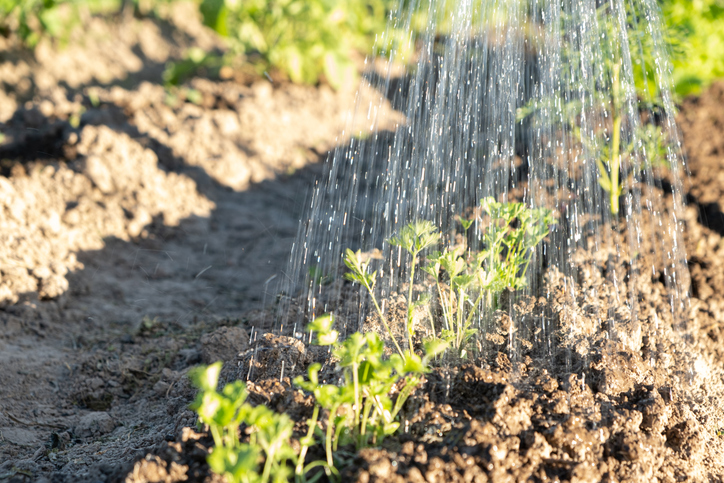
Building a Support Network in the Farming Community
One of the best things about hobby farming in the Prairies is the community. Joining local farming groups, co-ops, or online forums can be an invaluable source of support, advice, and resources. Many Prairie towns have agricultural extension offices offering workshops, funding opportunities, and mentorship programs for new farmers.
Joining farmers markets, CSA initiatives, or farm-to-table events gives you a chance to connect your sales with a ready-made audience. It's a great way to meet customers and build your network for your hobby farm products. By engaging with the rural community and connecting with experienced farmers, you'll pick up useful tips and techniques. Plus, you'll feel a stronger sense of belonging and pride in your new rural setting.
The Benefits of Hobby Farming in the Prairies
Hobby farming is a big investment of time, planning, and finances, but what you get in return can make everything worth it. A lot of the fun involves growing your food, raising your animals, and living with nature.
Taking the time to learn, plan, and get the right insurance will set your hobby farm up for long-term success. Whether you're raising animals or growing crops, there's a lot of potential in Prairie farming. Open your arms to the trials and joys of hobby farming, and let it be a sustainable way not only for you but also to help preserve the rich agricultural heritage in the heart of Canada.
Please note that the information in this article may not accurately reflect your insurance policy from Sandbox Mutual Insurance or another insurance company. Please refer to your policy or talk to your broker about your specific coverages.

FAQ'S
Does my regular home insurance cover hobby farming activities?
Unfortunately, not usually. Standard home insurance isn't designed to cover livestock, farm buildings, equipment, or liability related to selling produce or caring for animals. Once you start hobby farming—even on a small scale—you'll want proper farm coverage to protect everything from your chickens to your greenhouse. That's where specialty options like Sandbox's Farm Lifestyle Box come in handy.
What kind of insurance do I need if people visit my hobby farm?
Anytime friends, volunteers, delivery folks, or customers step onto your property, there's a chance for slips, trips, or unexpected "I thought that goat was friendly" moments. Farm liability insurance helps protect you if someone gets hurt or property is damaged. If you sell eggs, veggies, honey, or other goods, adding product liability ensures you're covered even after your products leave the farm.
How do I know what kind of farm coverage is right for my operation?
Start by looking at what you'll be raising, storing, or selling. Crops, animals, equipment, and outbuildings all have different insurance needs. A broker who specializes in agricultural policies can walk you through your risks, help tailor your coverage, and make sure nothing gets overlooked. Whether you're keeping bees, growing tomatoes, or raising a flock of hobby hens, the right coverage keeps your farm future-ready.

